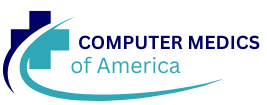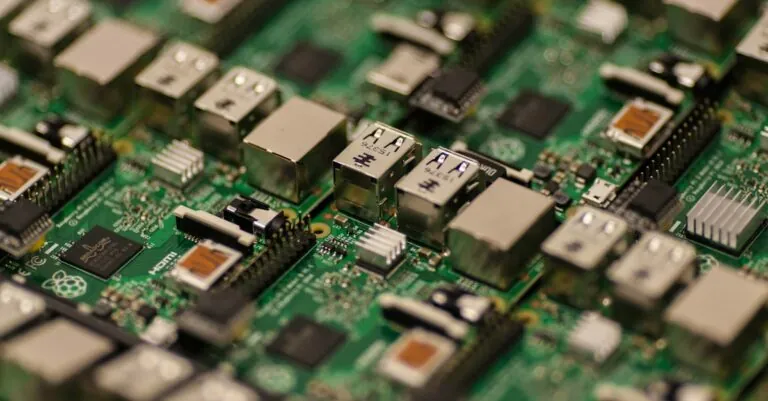In a world where your toaster might just be plotting against you, the Internet of Things (IoT) is revolutionizing healthcare with a touch of brilliance. Imagine medical devices that not only monitor your health but also communicate with each other like gossiping friends at a coffee shop. From smart insulin pumps to connected heart monitors, these gadgets are making healthcare more efficient and a lot less scary.
Table of Contents
ToggleOverview of Internet of Things Medical Devices
Internet of Things (IoT) medical devices represent a significant advancement in healthcare technology. These devices connect to the internet, enabling seamless data exchange between patients and healthcare providers. Examples include smart insulin pumps, which monitor glucose levels and automatically adjust insulin delivery. Heart monitors also fall into this category, providing real-time data on a patient’s cardiac health.
Data collected from these devices enhances patient care through remote monitoring and timely interventions. Continuous health insights allow for proactive management of chronic conditions. The ability to analyze data trends can lead to more personalized treatment plans tailored to individual patient needs.
Interconnected devices facilitate communication not only among healthcare professionals but also among patients. This connectivity fosters a supportive environment where patients can feel empowered to manage their health. By gaining access to their health data, patients can make informed decisions and engage actively in their care plans.
Security remains a critical concern in the implementation of IoT devices. Ensuring that patient data is protected from unauthorized access is paramount. Compliance with regulations such as the Health Insurance Portability and Accountability Act (HIPAA) enhances trust in these technologies.
Overall, IoT medical devices are revolutionizing the healthcare landscape. They streamline processes, improve patient outcomes, and represent a future where healthcare is increasingly integrated with technology. Enhanced data-driven approaches create numerous possibilities for innovation in medical care.
Benefits of Internet of Things Medical Devices
IoT medical devices offer various advantages that reshape healthcare delivery. These benefits include enhanced patient monitoring and improved data collection, both vital for effective care.
Enhanced Patient Monitoring
Smart devices facilitate real-time monitoring of patients’ vital signs. Heart rate and blood pressure can be tracked continuously, ensuring timely interventions when abnormalities arise. Remote monitoring tools allow healthcare providers to assess patients outside clinical settings, fostering personalized care. Alerts can notify clinicians of critical changes, enabling immediate responses. Furthermore, such connectivity encourages patient engagement, as individuals can easily access their health data. This active participation leads to better adherence to treatment plans.
Improved Data Collection
IoT devices streamline data collection processes significantly. They capture extensive health metrics, ensuring comprehensive patient profiles. Automated data transfer reduces manual entry errors and enhances accuracy. Real-time analytics provide healthcare teams with insights that enhance decision-making. With aggregated data, trends can be identified, facilitating proactive care strategies. Additionally, efficient data sharing supports better collaboration among healthcare professionals, improving overall patient outcomes. The increased availability of accurate data fosters innovation and research within the medical field.
Challenges in Implementing Internet of Things Medical Devices
Implementing Internet of Things (IoT) medical devices presents several challenges that require attention. Security remains at the forefront as unauthorized access can compromise sensitive patient data. Attackers frequently target healthcare systems, emphasizing the necessity for robust encryption and authentication measures. Organizations face stringent regulations like HIPAA, increasing the complexity of data protection. Addressing these security issues builds trust between patients and healthcare providers.
Interoperability issues also pose significant challenges. Diverse IoT devices often operate on different platforms and protocols. Lack of standardization creates communication barriers between devices and healthcare systems. Healthcare providers may experience difficulties integrating new technologies into legacy systems. Achieving seamless data exchange among various devices enhances the effectiveness of patient care. Emphasizing collaboration between manufacturers and healthcare organizations fosters an ecosystem where interoperability thrives.
Future Trends in Internet of Things Medical Devices
Emerging trends in IoT medical devices showcase significant advancements, driving innovation in healthcare. The fusion of artificial intelligence with IoT leads to smarter, data-driven solutions. Machine learning algorithms now enable predictive analytics for patient health, offering proactive care opportunities. Enhanced connectivity between devices facilitates real-time data sharing, fostering teamwork among healthcare professionals. Furthermore, integration with wearable technology creates a more comprehensive health monitoring ecosystem, streamlining patient interactions and data flow.
Advancements in Technology
Rapid advancements in technology push IoT medical devices toward greater efficiency. More powerful sensors now capture detailed health metrics, improving accuracy in monitoring. Cloud computing enhances data storage and accessibility, offering healthcare providers seamless access to patient information. Seamless integration with telemedicine platforms strengthens remote consultations and follow-ups. Blockchain technology emerges as a solution for securing sensitive data, building trust between patients and providers.
Increased Adoption in Healthcare
Increased adoption of IoT medical devices transforms healthcare practices. Hospitals and clinics embrace technology to improve patient care and operational efficiency. More healthcare providers utilize smart devices to monitor chronic conditions, leading to timely interventions. Patients benefit from enhanced engagement through health apps, empowering them to take control of their wellness. Remote monitoring reduces hospital visits, optimizing resources and minimizing costs. As regulatory frameworks adapt, more organizations can leverage these innovations for better health outcomes.
The rise of IoT medical devices marks a pivotal shift in healthcare, ushering in an era of enhanced patient care and operational efficiency. These devices not only empower patients to take charge of their health but also streamline processes for healthcare providers. As technology continues to evolve, the integration of AI and advanced analytics will further refine patient monitoring and treatment strategies.
Addressing security and interoperability challenges remains crucial to fully realize the potential of IoT in healthcare. With ongoing collaboration among stakeholders, the future promises a more connected and responsive healthcare system. Embracing these innovations will ultimately lead to improved health outcomes and a more proactive approach to patient care. The journey of IoT in medicine is just beginning, and its impact will be felt for years to come.



